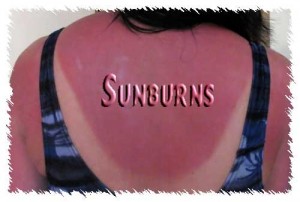Category: Breast Pain
Causes of sore breast and tips to deal with problem
Sore breast is a common problem that most women have to deal with especially during pregnancy. Sore breast or sore nipples is something that many women experience during their reproductive cycle. They could be caused by various factors depending on the changes that are taking place in your body.
Sore breast before menopause is mainly due to the increase in progesterone levels. When progesterone level in the body increases it increases the water retention capacity of the body. When the water levels in the body increases, it increases the water level in the breast tissues which can lead to sore nipples and painful breast. The level of pain and soreness will vary from person to person. However, if the woman does not get pregnant, the progesterone levels began to fall which reduces the soreness in the breast and nipples. At times, women have breast pain and sore nipples during pregnancy. This is because the estrogen and progesterone levels in the body increase during pregnancy. Some other causes of sore breast include sleeplessness, mood changes, headaches, irregular menstruation and weight gain.
Sore breast or sore nipples can also be a sign of breast cancer. Women who suffer from Paget’s disease of nipples usually complain of irritation, itching and pain in the nipples. As the disease progresses, it can completely wear out the nipples. Paget’s disease is usually an indication of cancer in breast tissues. So if you have persistent irritation in your breast and nipples, make sure you visit your doctor.
If you are one of those who have acute pain in breast, here are a few tips that can help you.
- You can reduce breast pain by minimizing the movement of your breast. To reduce your breast movement, you can wear sports bra.
- You can also minimizing your breast movement by wearing a bra when you sleep.
- Minimize the contact with your breast as it can increase the pain. Make sure you explain the problem to your partner without hurting their feelings.
- Having a warm shower can help in reducing the pain in your breast. When warm water hit your breast in can help in easing the pain and is comforting. If you don’t find it comforting, it is beast that you avoid warm shower.
- You can also wear breast pads to protect your breast from lining in your bra. Lining in your bra can be painful especially if the seam runs through inside the bra cup. If you don’t like wearing bra pads, you can wear seamless bras.
- Some doctors may also suggest hormone replacement therapy or medication to control the hormone levels in the body and reduce breast pain.
Breast and Muscle pain after Sunburn
Sunburn is one of the most common problems that people suffer from especially during summers. When you go fishing or plan to enjoy your holiday with your family at a well-known beach resort, you increase your chances of getting sunburned. Even though sunburn is seldom fatal, people are known to suffer from serious problems because of sunburn. Also, people who suffer from sunburn in their adolescence or childhood are more like to develop melanoma later in life.
Some women who suffer from sunburn may also suffer from excessive pain in their muscles and breast. Pain is muscle is usually caused when a person sweats a great deal when exposed to sun or during tanning. Usually the pain the muscles and breast will subside with time. However, if you still feel the pain after a few hours, it best you move to a cool area. Also, you can drink replacement fluids to compensate for the loss of moisture from the body.
At times, the pain in the muscles and breast can be unbearable and it is best that you consult a doctor if the symptoms don’t go away even after fluid levels have been restored. You must contact the doctor immediately if the following conditions develop:
- If the person who is affected by sunburn is not able to drink fluids because they are vomiting or suffer from nausea.
- If the person is suffering from more severe symptoms like vomiting, headache, fever and shortness of breath.
The doctor will analyze the condition of the patient and will usually suggest IV fluid rehydration. However, if the doctor feels that condition of the patient is not serious they may suggest oral rehydration.

